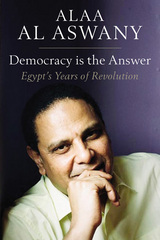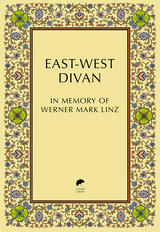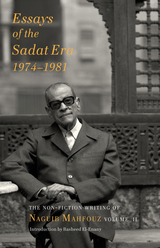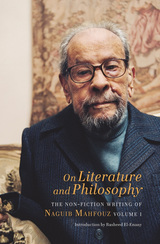4 books about Byrne, Aran

Democracy is the Answer
Egypt's Years of Revolution
Alaa Al Aswany
Gingko, 2014
As the Egyptian revolution unfolded throughout 2011 and the ensuing years, no one was better positioned to comment on it—and try to push it in productive directions—than best-selling novelist and political commentator Alaa Al-Aswany. For years a leading critic of the Mubarak regime, Al-Aswany used his weekly newspaper column for Al-Masry Al-Youm to propound the revolution’s ideals and to confront the increasingly troubled politics of its aftermath.
This book presents, for the first time in English, all of Al-Aswany’s columns from the period, a comprehensive account of the turmoil of the post-revolutionary years, and a portrait of a country and a people in flux. Each column is presented along with a context-setting introduction, as well as notes and a glossary, all designed to give non-Egyptian readers the background they need to understand the events and figures that Al-Aswany chronicles. The result is a definitive portrait of Egypt today—how it got here, and where it might be headed.
This book presents, for the first time in English, all of Al-Aswany’s columns from the period, a comprehensive account of the turmoil of the post-revolutionary years, and a portrait of a country and a people in flux. Each column is presented along with a context-setting introduction, as well as notes and a glossary, all designed to give non-Egyptian readers the background they need to understand the events and figures that Al-Aswany chronicles. The result is a definitive portrait of Egypt today—how it got here, and where it might be headed.
[more]

East-West Divan
In Memory of Werner Mark Linz
Edited by Aran Byrne
Gingko, 2014
This collection of scholarly essays on Egyptian culture, history, society, archeology, literature, art, and conservation is published in memory of Werner Mark Linz, who spent much of the latter part of his professional life as the Director of the American University in Cairo Press. East-West Divan is the first volume of the Gingko Library, a publishing project that embraces scholarship from both East and West, conceived by Werner Mark Linz to foster greater cross-cultural understanding. Among the contributors to this collection are the Egyptian novelist Alaa Al Aswany, author of The Yacoubian Building; Egyptian archaeologist Zahi Hawass; the renowned Swiss theologian, Hans Küng; the author of the acclaimed A Fort of Nine Towers, Qais Akbar Omar; and Prince El Hassan bin Talal of Jordan.
[more]

Essays of the Sadat Era
The Non-fiction Writing of Naguib Mahfouz: Volume II
Naguib Mahfouz
Gingko, 2015
When Naguib Mahfouz quit his job as a civil servant in 1971, a Nobel Prize in literature was still off on the horizon, as was his global recognition as the central figure of Arab literature. He was just beginning his post on the editorial staff of the Egyptian newspaper Al-Ahram, and elsewhere in Cairo, Anwar Sadat was just beginning his hugely transformative Egyptian presidency, which would span eleven years and come to be known as the Sadat era. This book offers English-language readers the first glimpse of the Sadat era through Mahfouz’s eyes, a collection of pieces that captures one of Egypt’s most important decades in the prose of one of the Middle East’s most important writers.
This volume stitches together a fascinating and vivid account of the dramatic events of Sadat’s era, from his break with the Soviet Union to the Yom Kippur War with Israel and eventual peace accord and up to his assassination by Islamic extremists in 1981. Through this tumultuous history, Mahfouz takes on a diverse array of political topics—including socioeconomic stratification, democracy and dictatorship, and Islam and extremism—which are still of crucial relevance to Egypt today. Clear-eyed and direct, the works illuminate Mahfouz’s personal and political convictions that were more often hidden in his novels, enriching his better-known corpus with social, political, and ideological context.
These writings are a rare treasure, a story of a time of tremendous social and political change in the Middle East told by one if its most iconic authors.
This volume stitches together a fascinating and vivid account of the dramatic events of Sadat’s era, from his break with the Soviet Union to the Yom Kippur War with Israel and eventual peace accord and up to his assassination by Islamic extremists in 1981. Through this tumultuous history, Mahfouz takes on a diverse array of political topics—including socioeconomic stratification, democracy and dictatorship, and Islam and extremism—which are still of crucial relevance to Egypt today. Clear-eyed and direct, the works illuminate Mahfouz’s personal and political convictions that were more often hidden in his novels, enriching his better-known corpus with social, political, and ideological context.
These writings are a rare treasure, a story of a time of tremendous social and political change in the Middle East told by one if its most iconic authors.
[more]

On Literature and Philosophy
The Non-Fiction Writing of Naguib Mahfouz: Volume 1
Naguib Mahfouz
Gingko, 2015
Naguib Mahfouz is one of the most important writers in contemporary Arabic literature. Winner of the Nobel Prize in 1988 (the only Arab writer to win the prize thus far), his novels helped bring Arabic literature onto the international stage. Far fewer people know his nonfiction works, however—a gap that this book fills. Bringing together Mahfouz’s early nonfiction writings (most penned during the 1930s) which have not previously been available in English, this volume offers a rare glimpse into the early development of the renowned author.
As these pieces show, Mahfouz was deeply interested in literature and philosophy, and his early writings engage with the origins of philosophy, its development and place in the history of thought, as well its meaning writ large. In his literary essays, he discusses a wide range of authors, from Anton Chekov to his own Arab contemporaries like Taha Hussein. He also ventures into a host of important contemporary issues, including science and modernity, the growing movement for women’s rights in the Arab world, and emerging ideologies like socialism—all of which outline the growing challenges to traditional modes of living that we saw all around him.
Together, these essays offer a fascinating window not just into the mind of Mahfouz himself but the changing landscape of Egypt during that time, from the development of Islam to the struggles between tradition, modernity, and the influences of the West.
As these pieces show, Mahfouz was deeply interested in literature and philosophy, and his early writings engage with the origins of philosophy, its development and place in the history of thought, as well its meaning writ large. In his literary essays, he discusses a wide range of authors, from Anton Chekov to his own Arab contemporaries like Taha Hussein. He also ventures into a host of important contemporary issues, including science and modernity, the growing movement for women’s rights in the Arab world, and emerging ideologies like socialism—all of which outline the growing challenges to traditional modes of living that we saw all around him.
Together, these essays offer a fascinating window not just into the mind of Mahfouz himself but the changing landscape of Egypt during that time, from the development of Islam to the struggles between tradition, modernity, and the influences of the West.
[more]
READERS
Browse our collection.
PUBLISHERS
See BiblioVault's publisher services.
STUDENT SERVICES
Files for college accessibility offices.
UChicago Accessibility Resources
home | accessibility | search | about | contact us
BiblioVault ® 2001 - 2024
The University of Chicago Press









